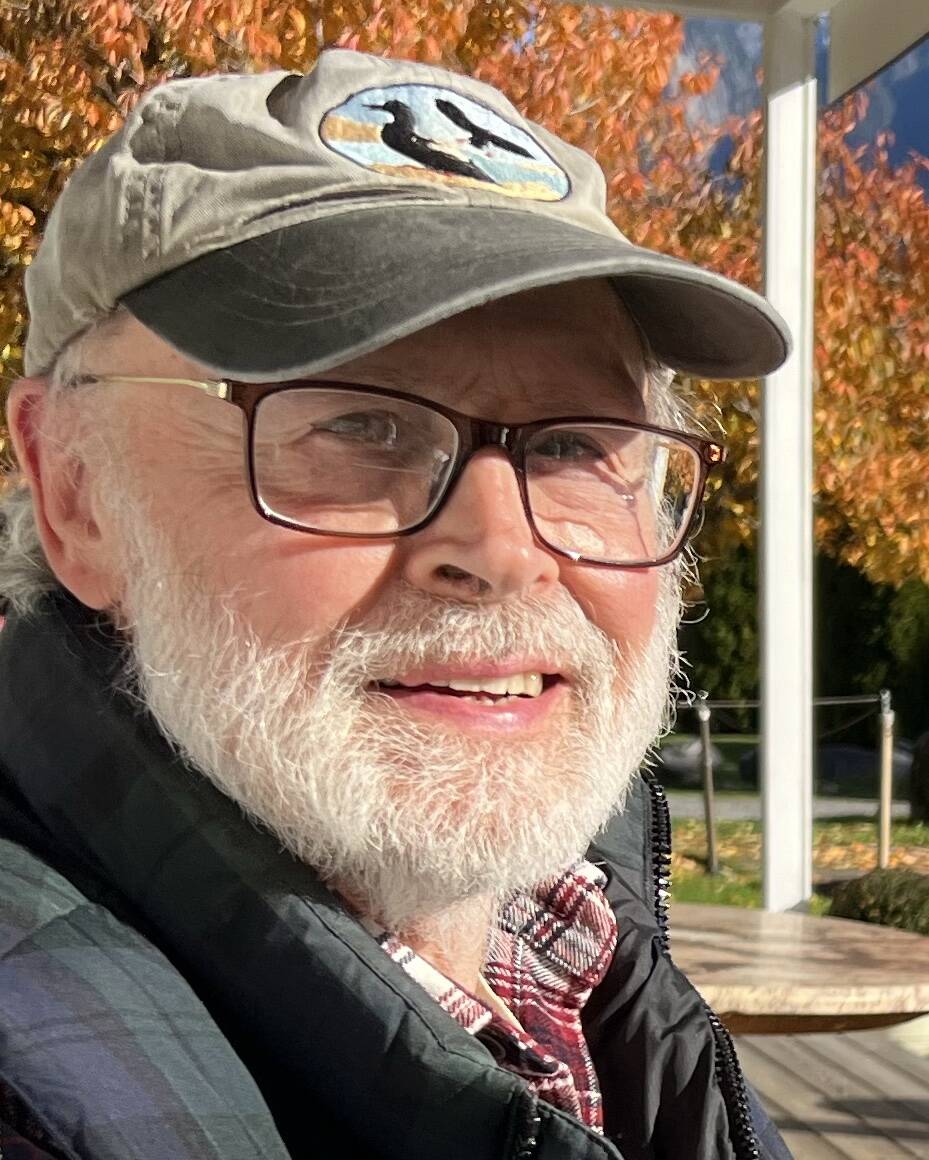Every one on the island gets the occasional opportunity to ignore or attend to a panhandler on some street corner. I actually appreciate the opportunity to get a little upset by their presence. I will look over at some unkempt man standing out in the rain with a bedroll in a trash bag, dressed in a dirty old poncho, and say to myself, “Holy crap, look at how hard that guy has it.” My second thought is, I wonder if he is just scamming me. He could have a nice warm car hidden around the corner and a home over in Anacortes.
So I have a choice, give in to the impulse to do something for him, just in case he really needs it, or drive on by. Seeing a panhandler often reminds me of a young friend’s story about beggars, that she brought back from her time in Niger in the Peace Corps. There were apparently a lot of people begging, and just about everyone would give them something. So my friend asked one of them, “Why do you give all of them money?”
The answer was, “Well, they wouldn’t ask, if they didn’t need it.” I thought that was a great answer, whether it was true or not. Nothing like a person free of doubt, confident in their beliefs. Panhandlers also remind me of a great short story by the Yiddish writer Isaac Bashevis Singer. In the story, “Gimpel the Fool,” poor Gimpel is so gullible. He is easily taken in by those who want to make a fool of him. One day Gimpel is called to the edge of a cliff, where there is a rope hanging over the edge. A boy tells him that there is a man hanging on for dear life on the other end of the rope, and he asks Gimpel to hold the rope while he goes for help. So Gimpel holds on to the rope. Minutes pass, then an hour, and his arms ache, but he holds on. Finally the boy returns, laughing, and tells him there is just a boulder on the other end of the rope. He asks why he always falls for it when they fool him. And Gimpel answers that he thought, maybe, they were fooling him, but he couldn’t take the chance. What if somebody really needed his help?
So I go back and forth when I see a panhandler. Should I be more like the folks of Niger or the poor fool Gimpel, and just assume that it is better to err on the side of offering help? Or let the next person by offer assistance? If you are like me, you drive on by one time. Stop the next.
I like the fact that such situations give me a chance to think about poverty. After some consideration, I might decide that the churches or maybe government services will take care of this person’s needs, that there isn’t any reason for me to take individual action. I suspect that some believe that a beggar might even be a good example for society, someone who can provide a lesson to us all. If you are lazy or careless in your behavior, you might become unemployable and unloved, out on the street with “no direction home,” as Bob Dylan sang it. So watch your step out there.
Another person might see the beggar and say, “There but for fortune go you or I.” This passerby dwells on the idea that a lot of the time it is no one’s fault that they fell into poverty. It could very well be circumstances beyond their control. It could be alcohol or drug addiction, something that started through some innocent doctor’s prescription. Or a childhood trauma or mental illness that has had a life long crippling effect. Who knows. Wouldn’t it then seem better to do something than do nothing?
In the case of the homeless, maybe an occasional person gets some character building experience out of it. The rest, I suspect, just suffer rather pointlessly. If I had my way we would be building tiny homes, or the like, all over the place and moving the estimated 650,000 people on the streets of America into them, few questions asked. We happen to be a society that is wealthy enough that we could do that with little real effort. I would just as well that we took the chance, like Gimpel, or the folk of Niger, and just do something for those in apparent need. It will take all of us to end the homelessness crisis. Individuals, church groups, community organizations and government, all are needed to address the need. One sign of progress here is the recent construction of tiny houses on the outskirts of Langley.
Dr. Michael Seraphinoff is a Whidbey Island resident, a former professor at Skagit Valley College and academic consultant to the International Baccalaureate Organization.



